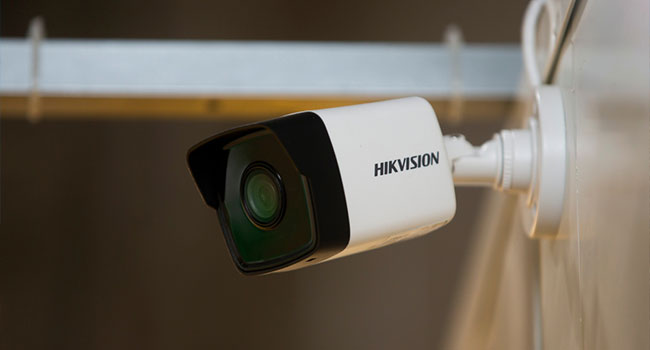
Hikvision, Dahua Technology Among Chinese Companies Added to U.S. Government Blacklist
The Trump administration has added 28 more Chinese organizations to its entity list, which forbids American companies from selling their products to foreign companies without government permission.
- By Haley Samsel
- Oct 09, 2019
After banning American companies from doing business with Chinese tech company Huawei, the Commerce Department announced Monday that it will blacklist another 28 Chinese organizations, including two giants in the video surveillance industry: Hikvision and Dahua Technology.
The organizations, which also included several Chinese government entities, were punished due to their association with human rights abuses and violations in China’s campaign to target Uighurs and other ethnic Muslim minorites in the Chinese province of Xinjiang, according to the Commerce Department.
“The U.S. Government and Department of Commerce cannot and will not tolerate the brutal suppression of ethnic minorities within China,” Secretary of Commerce Wilbur Ross said in a statement. “This action will ensure that our technologies, fostered in an environment of individual liberty and free enterprise, are not used to repress defenseless minority populations.”
The move to add the companies to the Entity List will affect their ability to buy American technology without official government approval, which is notoriously difficult to obtain once a company has been added to the list.
In its response to the announcement, Hikvision denied committing human rights violations and said it has been working with government officials over the past year to “clarify misunderstandings about the company.” In January, Hikvision also retained former U.S. Ambassador Pierre Richard Prosper to advise on human rights compliance.
“Punishing Hikvision, despite these engagements, will deter global companies from communicating with the U.S. government, hurt Hikvision’s U.S. businesses partners and negatively impact the U.S. economy,” a company spokesperson said in a statement.
Dahua Technology said it strongly protested the decision and called on the Trump administration to reconsider it due its “lack of any factual basis.”
“Dahua is actively working to ensure our investment and business operations around the world to comply with all applicable laws and regulations,” the company said in a statement posted to its website. “Regarding such decision of U.S. government, we have actively taken various measures, and we will continue providing outstanding products and services to our customers.”
Similar to Huawei, both Hikvision and Dahua have been suspended from ONVIF for as long as the U.S. levies sanctions against them, SecurityInfoWatch reported.
Other companies affected by the blacklist specialize in artificial intelligence, facial recognition and video surveillance, including Megvii Technology, Yitu Technologies and SenseTime.
The impact of the blacklist decision on the corporations will likely be mixed in the short term, The New York Times reported. Many companies can find ways to replace their American components, including U.S.-made chips. It will be more difficult for those companies to replace the back-end servers that allow customers to analyze footage and store surveillance video.
In the long term, the Chinese companies on the entity list may face obstacles to operating in American and European markets as well as recruiting employees in the U.S., the Times reported. Hikvision has more than 34,000 employees worldwide across a number of divisions, and Dahua employes over 16,000 people in Latin America, Europe and North America.
“Most global technology companies are setting up labs abroad, partnering with the best universities around the world and looking to recruit top talent from everywhere,” Matt Sheehan, a fellow at MacroPolo, told the Times. “That all just got a lot harder now that they’re marked with the scarlet letter of the entity list.”
The announcement comes as China faces growing criticism for its detention and surveillance of the Uighur minority in the name of rooting out Islamic extremism in the country. The surveillance operation, which has involved the deployment of facial recognition technology to track over one million people living in Xinjiang, was cited in the Commerce Department’s announcement.
“Located in [Xinjiang] and throughout China, these entities have all been implicated in the implementation of China’s campaign of repression, mass arbitrary detention, and high-technology surveillance,” the announcement reads.